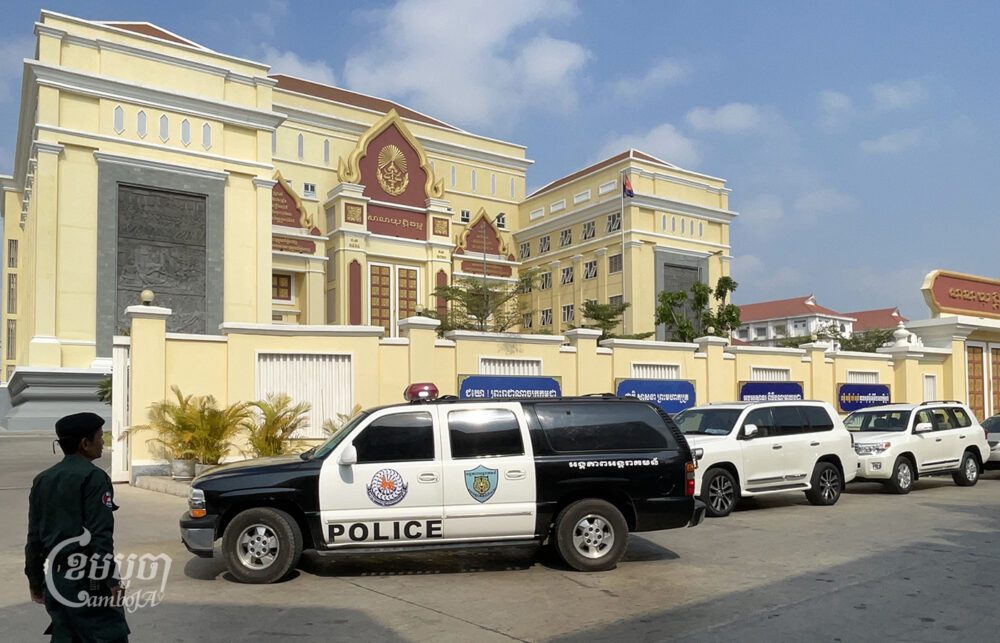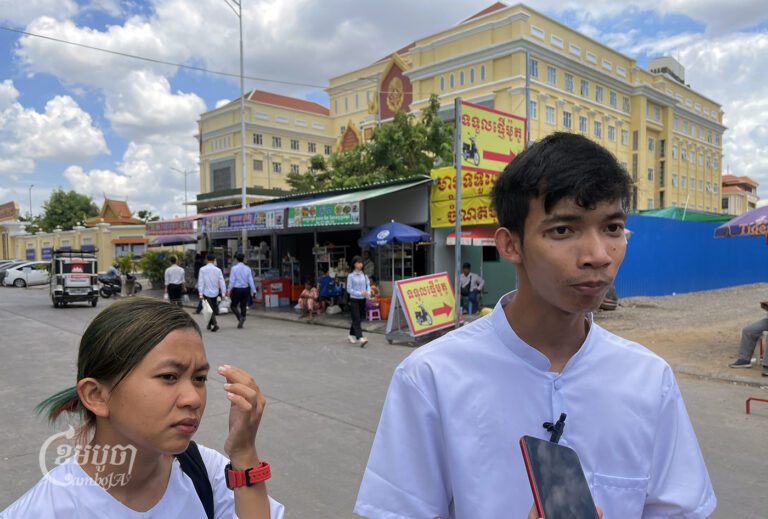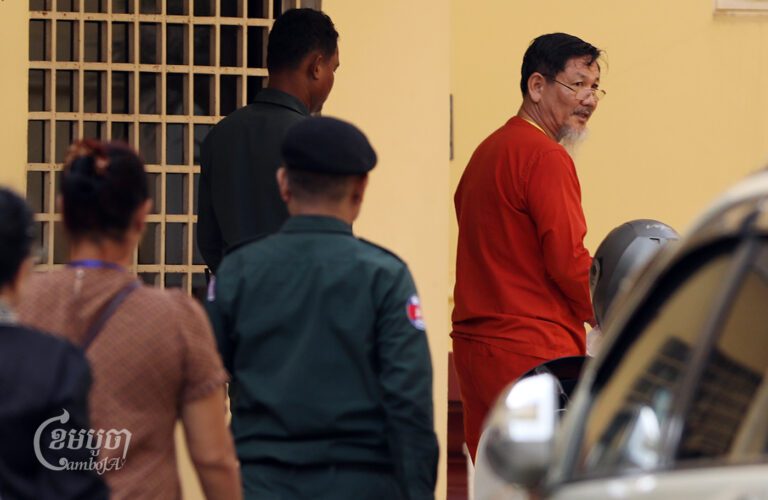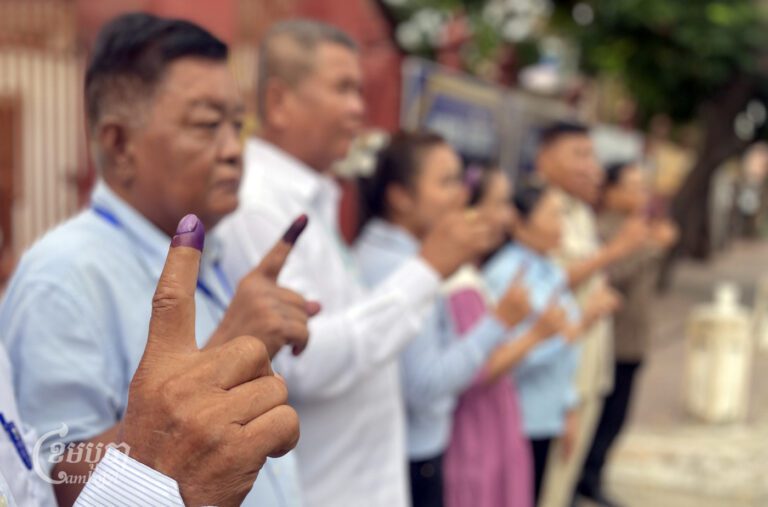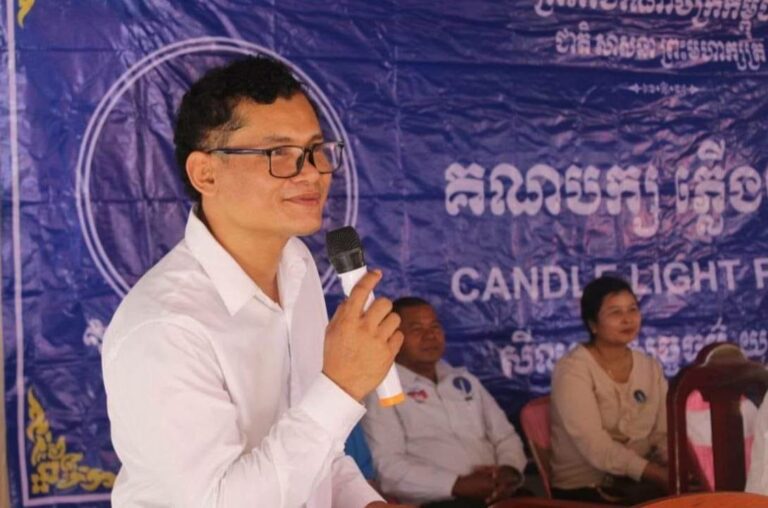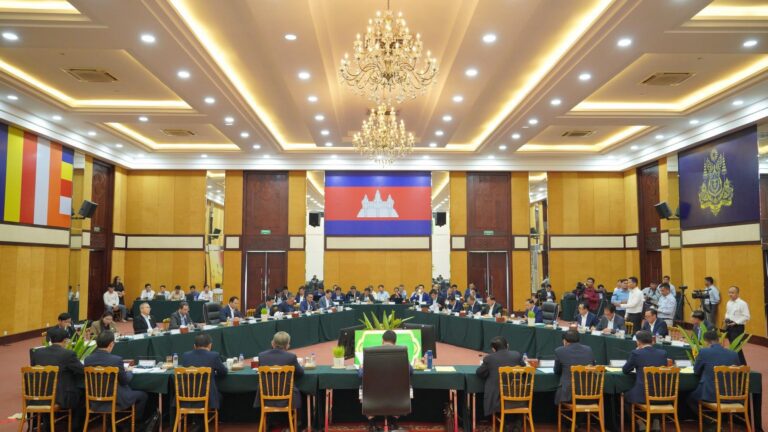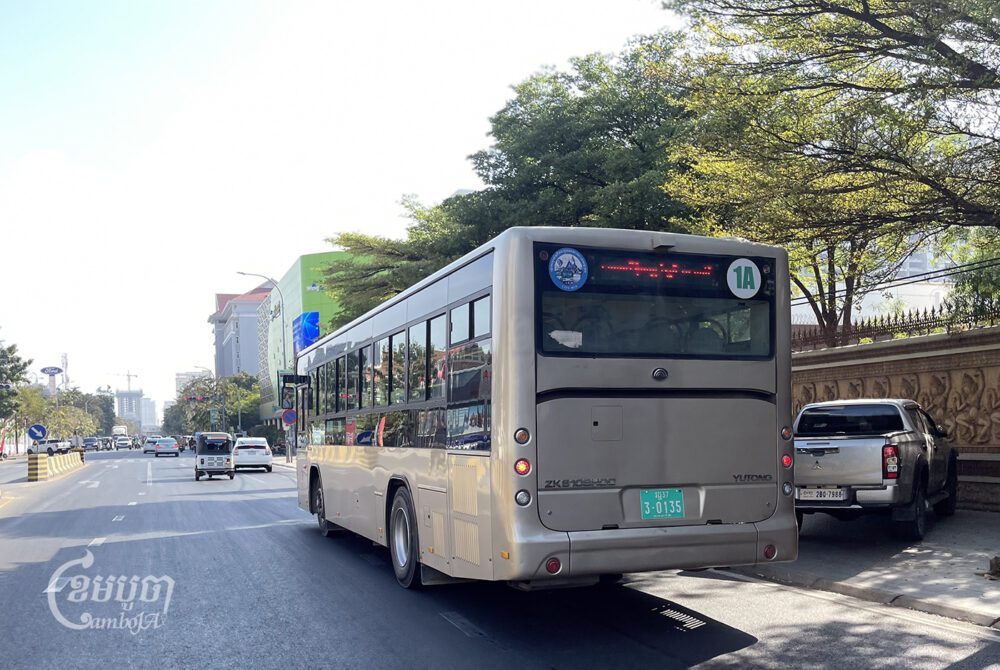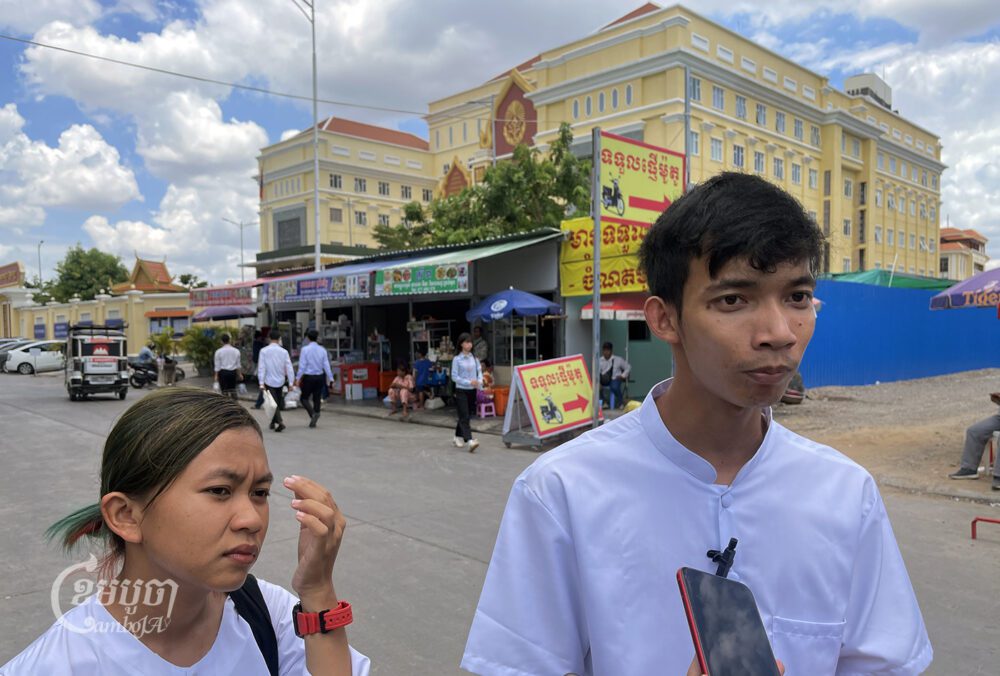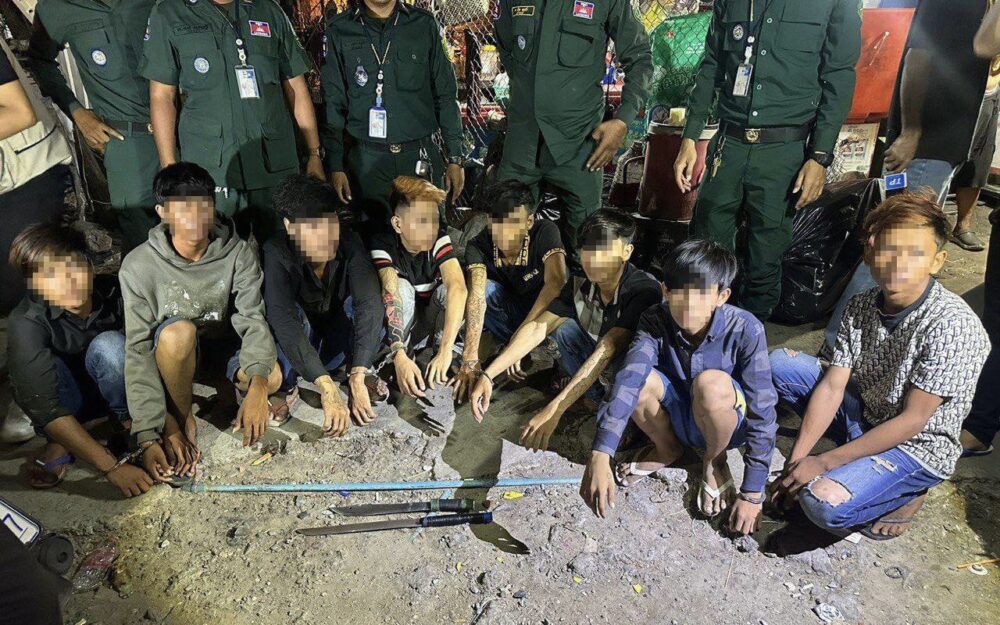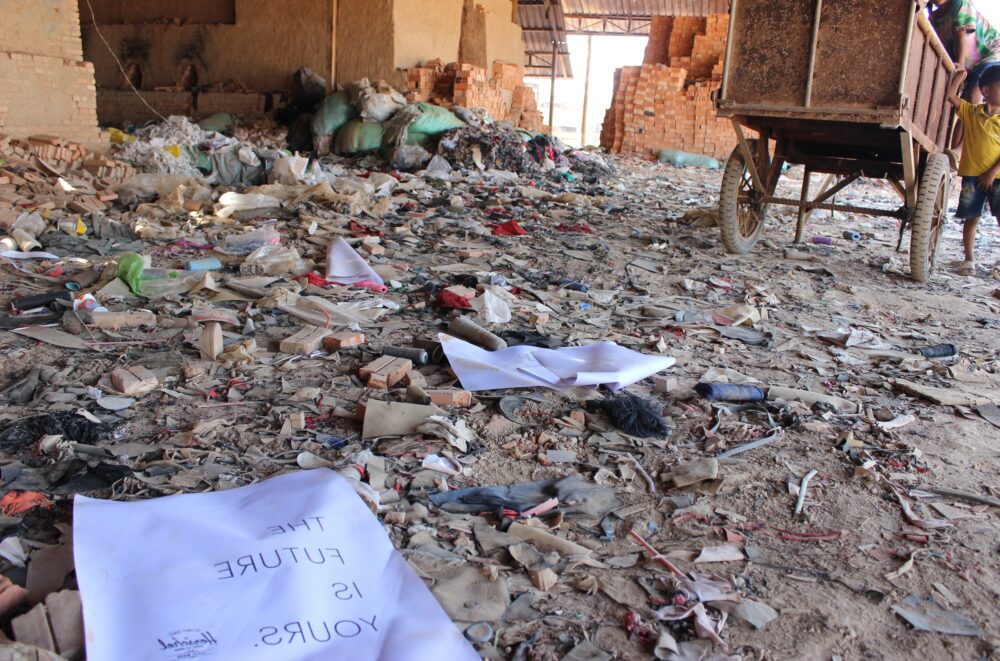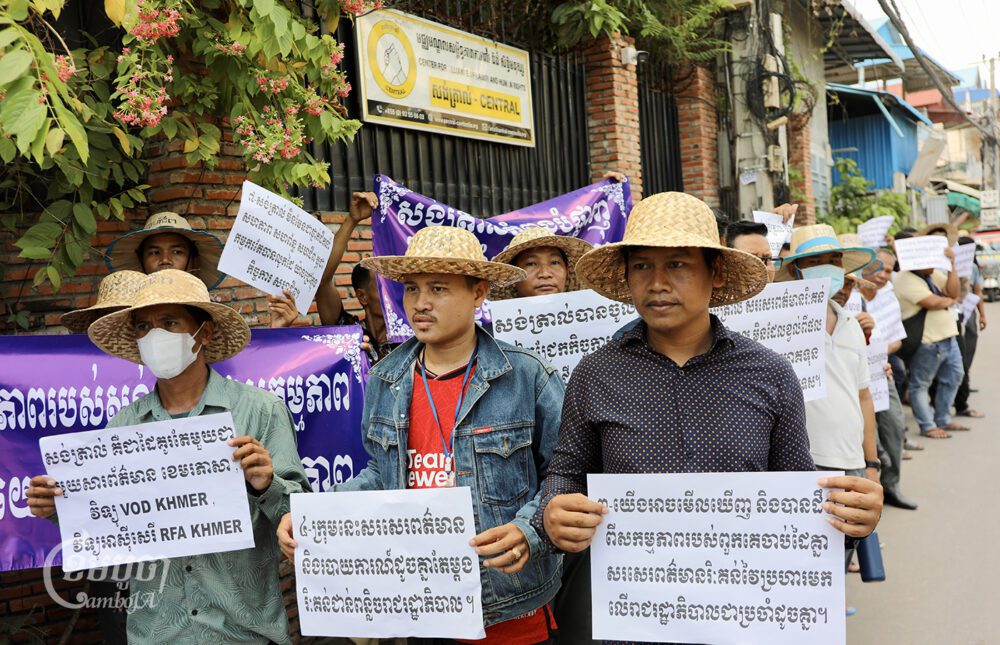Earlier this week, the Phnom Penh Court Appeal upheld a lower court’s pre-trial detention decision of political activists Khem Chanvannak, Ma Chenda, Hak Kosal and National Power Party (NPP) leader Sun Chanthy.
On June 7, the Supreme Court also upheld a lower court verdict to detain social commentator and government critic Ny Nak, and political activist Meu Senghor on June 10.
Senghor, charged with public insult under Article 307 of the Criminal Code and incitement to discriminate under Articles 494 and 496 of the same law, told the court earlier that placing him in pre-trial detention was inconsistent with his charge and the law.
Lawyer Choung Choungy said on Monday that the Appeal Court decided to keep Chanvannak, Chenda and Kosal in custody as their case had reached trial at Phnom Penh Municipal Court and was beyond the scope of the higher court.
Khem Chanvannak’s wife Long Sodany said the rejection of the bail application was unfair because her husband was innocent. She urged the court to drop the charges and release him as he was the sole breadwinner of the family, arguing that she and her two children, who were still studying, were traumatized and were suffering from a lack of income.
“My children haven’t seen their father and miss him. Whenever they come home from school, we always eat together. Now they are depressed […] I also don’t dare to spend money. We need to reduce our utility bills, such as electricity,” she said.
On Tuesday, lawyer Choungy, who is defending NPP leader Sun Chanthy, walked out of the latter’s bail application hearing because the authorities failed to bring his client to court.
“The court kept my client in detention so that they could deal with the procedure [investigation], and also feared that if he was out of jail, he would escape. So, they didn’t bring him to the hearing. This affects his rights. […] So, who am I defending? The wind? This demeans my work,” he said.
Not having brought Chanthy to court for his bail hearing was a violation of his right to a fair trial as he has not been found guilty yet, Choungy said, stressing that the “law was not the main problem in Cambodia, rather it was the law enforcers”.
He declined to comment further out of concern for Chanthy’s safety.
Chanthy’s sister, Sun Vandy, expressed disappointment over her brother’s absence at the hearing. She wanted to meet her brother, whom she last saw a month ago after he was arrested at the airport on his return from Japan. She hoped that the court would start the trial and render justice to her brother soon.
“I don’t know what the court or the other side [prosecution] thinks, but why did they not bring my brother to court? I want to see him.” “Normally, his family would see him in the morning and evening, but now they are suffering. It is not acceptable, but I have to persevere if I want to see my brother. ”
Chhat Vichea, a supporter of Sun Chanthy from Banteay Meanchey province, said not bringing Chanthy to court has seriously affected his rights.
“If he is not present, the court will charge him, so how can he defend himself?” he said.
Court of Appeal spokesperson Khun Leang Meng said the judge upheld the verdict in Chanthy’s detention hearing because he was afraid the accused would escape.
“As a result of the detention, the investigating judge argued that the offense was punishable by a jail term of more than one year. To ensure the accused does not escape, the investigating judge decided to detain him. When Chanty appealed, he did not submit an excuse for the trial chamber to consider,” Leang Meng said.
Justice Ministry spokesperson Chin Malin declined to comment, stating that he was busy.
Civil society groups working to promote human rights view pretrial detentions of political activists as “unnecessary” and seriously impacting their rights, freedoms and their family life. The remarks followed the recent decisions by the courts to uphold the pre-trial detention of political activists and leaders.
The groups state that access to bail for political activists was rare, except for when there have been “negotiations”, “acceptance of mistake” or a “declaration to join the ruling party”. National and international rights groups have criticized the outcome, as in the way activists resort to unprecedented ways to seek bail, which adds to the suspicion that their detention was politically-motivated rather than criminal.
Ny Sokha, president of Adhoc, said the pre-detention of political activists was unnecessary because some of the activists have never committed any crime. They owned homes and had jobs, and had no power to threaten others.
“I think they [national and international community] see detentions as exerting pressure on the activists more than detention of law enforcement, that is why they opine that the case is more political than criminal,” Sokha said.
Releasing political activists on bail could help reduce state expenditure and overcrowding in prisons as well as lower the burden on the relatives of the accused who have to spend money to visit the prison, he pointed out.
With regards to pretrial detention of political activists, the government risks being criticized by national and international bodies as it curbs political freedom, which could turn away investors in Cambodia. In addition, it might impact Cambodians’ participation in political and social movements as allowed under the Constitution.
“Indeed, the judiciary is not independent of any political party, especially to political activists. We have yet to see an independent judiciary,” Sokha said.
Am Sam Ath, operation director of rights group Licadho, said according to the law, pre-trial detentions were a “last resort” because it severely affected the rights of defendants and their families.
The law stipulates that the court should first think about the impact on the rights of the accused and about the challenges which might be experienced by the accused’s family because if the family depended solely on the accused for income, placing him in pre-trial detention would be detrimental to the household income.
“That’s why it [the law] provided the option of freedom rather than pretrial detention, unless it is necessary or imminent,” Sam Ath said referring to Articles 203 and 205 of the Criminal Procedure Code.


